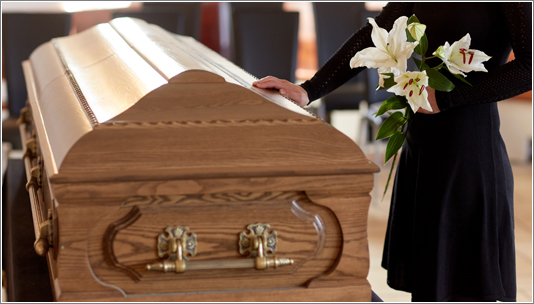

Can You Rule from the Death Concerning Your Funeral and Burial?
September 11, 2018 | by the National Care Planning Council
The simplest way to make sure that the family carries out the wishes of the deceased person regarding the funeral and burial is to set up a prepaid funeral plan with a funeral home. Because of a binding contract and commitment of funds prior to death, the funeral home is obligated to carry out the wishes in the contract. This does not mean, that family members cannot request additions to the plan if they are willing to pay for it. On the other hand, the contract makes it binding on the funeral home to carry out the wishes of the deceased.
Many people do not like to set up prepaid funeral plans for various reasons. One might be that the family may want to select a different funeral home from the one that created the plan. Many of these plans are transferable between funeral homes, but the exact provisions of the contract and recognition of what has been paid for or not might not be honored by an acquiring funeral home. In addition, the new funeral home may not have the resources such as the caskets or the other physical arrangements designated in the contract from the previous funeral home. The new company may offer substitutes, but in some cases substitutes may not be available.
Another reason for not wanting a prepaid funeral is that funeral home plans are often the most expensive way to provide for final arrangements. Some people may desire more simple arrangements at lesser cost and as such may want to create their own funeral plan that will be binding on the family. These people may have a life insurance policy in place or have cash set aside for this purpose. But, because there is no contract, the family could use the money in a manner contrary to that desired by the deceased.
Binding Instructions in Those States That Allow It
At least 40 states have a statutory obligation for survivors to honor the written wishes of the deceased. However, in a few states, wishes may be over-turned in the case of cremation. Even if there is no personal preference law in any given state, it is better to have wishes in writing than not at all. Courts routinely support all but the most outrageous wishes.
Perhaps the most useful laws are those permitting the deceased to name a designated agent for body disposition. If the deceased is estranged from next-of-kin or was never married to a companion, the designated agent law allows that person to name someone other than a legal spouse or relative to carry out his or her wishes. Or perhaps one of the children is a little more inclined to follow the wishes of the deceased than the other children.
Sometimes circumstances change, and it seems appropriate to change funeral plans. One man lived so long that none of his friends were left to come to a viewing. A public viewing for the single surviving child didn't make sense.
Perhaps the plan was to donate the body to a medical school in Idaho but the person dies while on a trip to New York. Should the estate pay for shipping the body back to Idaho, or could the agent be trusted to make appropriate alternative arrangements?
A designated agent is not obligated to carry out the wishes if they're highly impractical, illegal, or financially burdensome. It's very important for the deceased or his or her agent to understand how much the wishes will cost, and to plan accordingly. A deceased person should not expect his or her designated agent to pay for a costly funeral if money was not set aside for that expense. On the website funerals.org you can find much more information pertaining to binding instructions for funeral and burial.
Instructions in a Will
In those states that have adopted the uniform probate code and those states that have adopted certain provisions of it, a will can specify desires for a funeral and burial. The probate court will recognize these instructions and allow the designated personal representative in the will to carry out these instructions prior to the official probate process or even appointing the personal representative.
